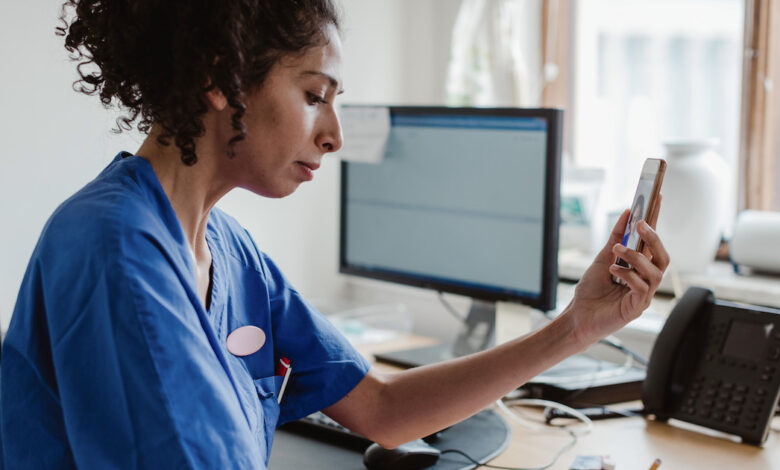GenAI is exciting, but ‘algorithmovigilance’ is a must

The whole healthcare industry is abuzz about the buzzy buzzword that is generative AI. But how big an impact can genAI really have in boosting care quality and enabling cost efficiencies? That’s the big question – and one that will be explored at HIMSS24 in a session titled, GenAI’s Got Talent – Can it Save Healthcare?
IT decision makers have very likely asked themselves versions of the panel discussion’s central query: “Is this truly the hope for the future of healthcare or just digital snake oil with great packaging?”
In Orlando, three of healthcare IT’s leading thinkers – Dr. Keith J. Dreyer, chief data science officer and chief imaging information officer at Mass General Brigham; Sonya Makhni, director of solutions at Mayo Clinic Platform; and Dr. Yaa Kumah-Crystal, health IT clinical director in pediatric endocrinology at Vanderbilt University Medical Center – will explore that question and others with moderator Don Woodlock, head of Healthcare Solutions at InterSystems, discussing the promise and limitations of generative AI models in an array of clinical and operations use cases.
We asked Kumah-Crystal (who’s also speaking on another HIMSS24 panel, focused on empowering clinicians with AI) for her perspectives on what artificial intelligence can and can’t do in healthcare settings.
Q. How excited are you about generative AI and its opportunities for improving healthcare?
A. As someone who has dedicated a significant portion of my career to the study of natural language processing and human-computer interaction, I am incredibly excited! My colleagues and family have learned to tolerate my frequent chatter about the topic. Like many others, I was amazed and taken aback by the advanced capabilities of generative AI tools like ChatGPT when I first encountered them just over a year ago. They have the potential to facilitate clinical documentation, information summarization for both providers and patients, and provide new insights into clinical care, ultimately improving care delivery quality. This Cambrian explosion of advances in AI has been very exciting and has brought new hope to some of the wicked problems we’ve struggled with in healthcare delivery.
Q. What are its limitations, in your views, and what are some aspects of genAI to be skeptical or cautious about?
A. While the advances in AI are exciting, we must be thoughtful about the implications during this exploratory phase. We need to exercise caution and still have healthy skepticism, particularly in terms of the algorithms’ safety and potential biases. This is why we’re using principles of “algorithmovigilance,” a term coined by our Chair of Biomedical Informatics, Peter Embi, to systematically monitor and prevent adverse effects.
Q. Where is AI deployed at Vanderbilt University Medical Center? What use cases are showing most success?
A. We are exploring various AI tools at VUMC, including ambient documentation, AI guidance for patients, and message generation. We’ve implemented a HIPAA compliant version of OpenAI’s large language model within our Azure environment. This is available to our VUMC community as a secure application for education and research, showing promising engagement.
We’re both ambitious in our goals and cautious in our approach to ensure safety.
Dr. Yaa Kumah-Crystal, Vanderbilt University Medical Center
Q. Are there plans to expand its use in the future? Is the health system being ambitious or cautious about how it’s rolling out AI?
A. Yes, we have plans to expand these uses in the future. Our researchers are examining how AI can facilitate decision support in safe and creative ways. We’re also incorporating these tools into medical education to help our trainees learn how to effectively use them as they become more integrated into future work and eventually become standards of care. We’re both ambitious in our goals and cautious in our approach to ensure safety.
Q. What do you hope attendees will learn from the HIMSS24 panel discussion.
A. We are in an exciting era of new possibilities with generative AI. There’s a sense of optimism and hope for how we can improve patient care. I hope attendees will learn about the potential of these AI tools, systematic approaches to their safe and effective use, and the importance of algorithmovigilance in preventing adverse effects.
The session, “GenAI’s Got Talent – Can it Save Healthcare?” is scheduled for March 12, from 10:30-11:30 a.m. in room W207C at HIMSS24 in Orlando. Learn more and register.
Mike Miliard is executive editor of Healthcare IT News
Email the writer: mike.miliard@himssmedia.com
Healthcare IT News is a HIMSS publication.
Source link



